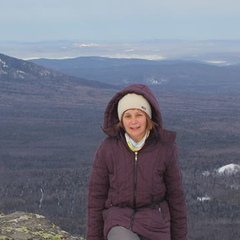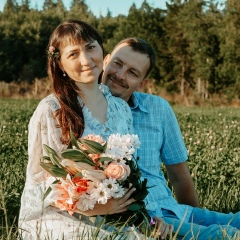Три раза послушал БГ “Время N”...
Конечно, всё мы это уже слышали. И “Сыграй нам, сёгун, на сякухачи, а мы с братками подпоём” в других формулировках. И гитарные риффы из “Тёмный как ночь” и “На ржавом ветру”. И слышали мы это, конечно, всё у того же Бориса Борисовича.
Звучит альбом, несомненно, филигранно. Но, скажу честно, для этих песен не имеет особого значения, кто там делает погоду в звуке: Сева Гаккель или Брайан Ино. Натура мастера отвлекает от полутонов. Как это было в случае с Дэвидом Боуи.
Невероятно ценен альбом не песнями и звуком, а настроением. Каждый постсоветский альбом БГ или “Аквариума” - это, по большому счёту, одна песня, но спетая с разным настроением. И оно очень важно для понимания чувств значительной части русскоговорящей интеллигенции в каждый конкретный период. В этом альбомы БГ не менее точны, чем тома книг “Намедни. Наша эра”.
“Русский альбом”, значительная часть материала для которого написана в Свияжске, показывал в застывшей в развитии стране образца 1992 года очарование досоветской эстетикой, но без её патетизации. А уже через четыре года на “Снежном льве” “турки строили муляжи Святой Руси за полчаса”. Да и сам Свияжск недавно превратился в такой же муляж…
Альбом за альбомом, которые даже лень считать, мы шагали с Гребенщиковым через пертурбации смены власти в стране на “Сестре Хаос” в 2002. А потом через время насыщения второй половины нулевых с “нам русским заграницей иностранцы ни к чему” вырулили в 2014 год к тяжёлой “Соли” с “губернаторами” и “праздниками урожая во Дворце труда”.
“Время N” - ещё один том этой книги. Тяжёлый и почти безысходный. В ситуации крушения мировых систем и постправды, отягощённой в локальном варианте активным подрезанием языков и военным временем. На альбоме чувствуется как горько прийти в эту эпоху в 64 года. Но слышна и робкая надежда на то, что новые смыслы всё же будут рождены. Только кем-то другим... https://music.yandex.ru/album/50463358
Конечно, всё мы это уже слышали. И “Сыграй нам, сёгун, на сякухачи, а мы с братками подпоём” в других формулировках. И гитарные риффы из “Тёмный как ночь” и “На ржавом ветру”. И слышали мы это, конечно, всё у того же Бориса Борисовича.
Звучит альбом, несомненно, филигранно. Но, скажу честно, для этих песен не имеет особого значения, кто там делает погоду в звуке: Сева Гаккель или Брайан Ино. Натура мастера отвлекает от полутонов. Как это было в случае с Дэвидом Боуи.
Невероятно ценен альбом не песнями и звуком, а настроением. Каждый постсоветский альбом БГ или “Аквариума” - это, по большому счёту, одна песня, но спетая с разным настроением. И оно очень важно для понимания чувств значительной части русскоговорящей интеллигенции в каждый конкретный период. В этом альбомы БГ не менее точны, чем тома книг “Намедни. Наша эра”.
“Русский альбом”, значительная часть материала для которого написана в Свияжске, показывал в застывшей в развитии стране образца 1992 года очарование досоветской эстетикой, но без её патетизации. А уже через четыре года на “Снежном льве” “турки строили муляжи Святой Руси за полчаса”. Да и сам Свияжск недавно превратился в такой же муляж…
Альбом за альбомом, которые даже лень считать, мы шагали с Гребенщиковым через пертурбации смены власти в стране на “Сестре Хаос” в 2002. А потом через время насыщения второй половины нулевых с “нам русским заграницей иностранцы ни к чему” вырулили в 2014 год к тяжёлой “Соли” с “губернаторами” и “праздниками урожая во Дворце труда”.
“Время N” - ещё один том этой книги. Тяжёлый и почти безысходный. В ситуации крушения мировых систем и постправды, отягощённой в локальном варианте активным подрезанием языков и военным временем. На альбоме чувствуется как горько прийти в эту эпоху в 64 года. Но слышна и робкая надежда на то, что новые смыслы всё же будут рождены. Только кем-то другим... https://music.yandex.ru/album/50463358
I listened to BG Vremya N three times ...
Of course, we've all heard this before. And “Play us, shogun, on the shakuhachi, and we will sing along with the brothers” in other formulations. And guitar riffs from "Dark as Night" and "In the Rusty Wind." And we heard this, of course, all from the same Boris Borisovich.
The album sounds undoubtedly filigree. But, to be honest, for these songs it doesn't really matter who makes the weather in the sound: Seva Gakkel or Brian Eno. The nature of the master distracts from the halftones. As was the case with David Bowie.
The album is incredibly valuable not for its songs and sound, but for its mood. Each post-Soviet album by BG or “Aquarium” is, by and large, one song, but sung with a different mood. And it is very important for understanding the feelings of a significant part of the Russian-speaking intelligentsia in each specific period. In this, BG's albums are no less accurate than the volumes of the books “Namedni. Our era".
“Russian Album”, a significant part of the material for which was written in Sviyazhsk, showed in a country frozen in the development of 1992, the charm of pre-Soviet aesthetics, but without its pathetization. And already four years later on the "Snow Lion" "the Turks were building dummies of Holy Russia in half an hour." And Sviyazhsk itself has recently turned into the same dummy ...
Album after album, which are even too lazy to count, we walked with Grebenshchikov through the perturbations of the change of power in the country on “Sister Chaos” in 2002. And then, after the saturation of the second half of the 2000s, with “we don't need Russians abroad”, in 2014 we drove to heavy "Salt" with "governors" and "harvest holidays in the Palace of Labor."
Time N is another volume of this book. Heavy and almost hopeless. In a situation of collapse of world systems and post-truth, burdened in the local version by the active clipping of languages and wartime. On the album you can feel how bitter it is to come to this era at 64 years old. But one can hear a timid hope that new meanings will nevertheless be born. Only by someone else ... https://music.yandex.ru/album/50463358
Of course, we've all heard this before. And “Play us, shogun, on the shakuhachi, and we will sing along with the brothers” in other formulations. And guitar riffs from "Dark as Night" and "In the Rusty Wind." And we heard this, of course, all from the same Boris Borisovich.
The album sounds undoubtedly filigree. But, to be honest, for these songs it doesn't really matter who makes the weather in the sound: Seva Gakkel or Brian Eno. The nature of the master distracts from the halftones. As was the case with David Bowie.
The album is incredibly valuable not for its songs and sound, but for its mood. Each post-Soviet album by BG or “Aquarium” is, by and large, one song, but sung with a different mood. And it is very important for understanding the feelings of a significant part of the Russian-speaking intelligentsia in each specific period. In this, BG's albums are no less accurate than the volumes of the books “Namedni. Our era".
“Russian Album”, a significant part of the material for which was written in Sviyazhsk, showed in a country frozen in the development of 1992, the charm of pre-Soviet aesthetics, but without its pathetization. And already four years later on the "Snow Lion" "the Turks were building dummies of Holy Russia in half an hour." And Sviyazhsk itself has recently turned into the same dummy ...
Album after album, which are even too lazy to count, we walked with Grebenshchikov through the perturbations of the change of power in the country on “Sister Chaos” in 2002. And then, after the saturation of the second half of the 2000s, with “we don't need Russians abroad”, in 2014 we drove to heavy "Salt" with "governors" and "harvest holidays in the Palace of Labor."
Time N is another volume of this book. Heavy and almost hopeless. In a situation of collapse of world systems and post-truth, burdened in the local version by the active clipping of languages and wartime. On the album you can feel how bitter it is to come to this era at 64 years old. But one can hear a timid hope that new meanings will nevertheless be born. Only by someone else ... https://music.yandex.ru/album/50463358
У записи 52 лайков,
0 репостов,
760 просмотров.
0 репостов,
760 просмотров.
Эту запись оставил(а) на своей стене Андрей Кочетков







































































